
Worms can live in the human body for a long time without showing any sign of their presence. The main symptoms of the parasitic infection appear much later, although they often resemble the symptoms of other diseases. A person can research the cause of their illnesses for a long time and be treated for an entirely different illness, although the solution to the problem lies in worm infection.
Typically, parasites are suspected at later stages when treatment for other illnesses does not help. At this point, the worms in the body reach maturity and it becomes more difficult to remove them. It is important to be able to recognize symptoms as soon as they appear and immediately make a diagnosis to find out if the parasitic infection is responsible for frequent allergic rashes and other unpleasant illnesses.
What types of worms can a person have?
Worms are a common name for many parasites. There are about a hundred of them in total, of which a small group of the most common representatives stands out, which should be mentioned separately.
earthworms
Pinworms are the most common type of helminth infestation that affects both adults and children. Their presence is easier to determine. This type of worm lays eggs in the skin between the buttocks. Therefore, a scrape is usually sufficient to determine the presence of worms.
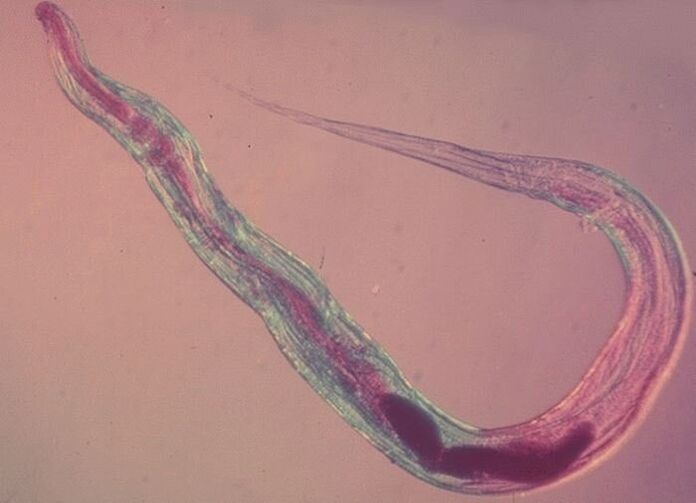
roundworm
The "target" of ascaris is the respiratory tract. In ascariasis, profuse sputum is released during coughing. If you take it for analysis, you might find traces of parasitic damage on it. An increase in body temperature is also likely.
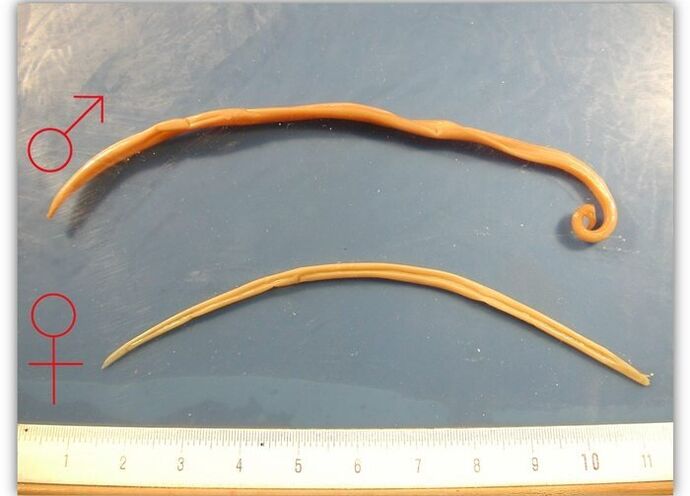
triquinela
These parasites are the hardest to detect - they stick to the intestinal wall and don't come out like worms. Trichinosis has the highest mortality rate among all types of helminthic lesions - this is a difficult disease to treat. With the flow of lymph, Trichinella capsules can spread throughout the body.
The symptomatology of this lesion is more similar to typhoid fever.
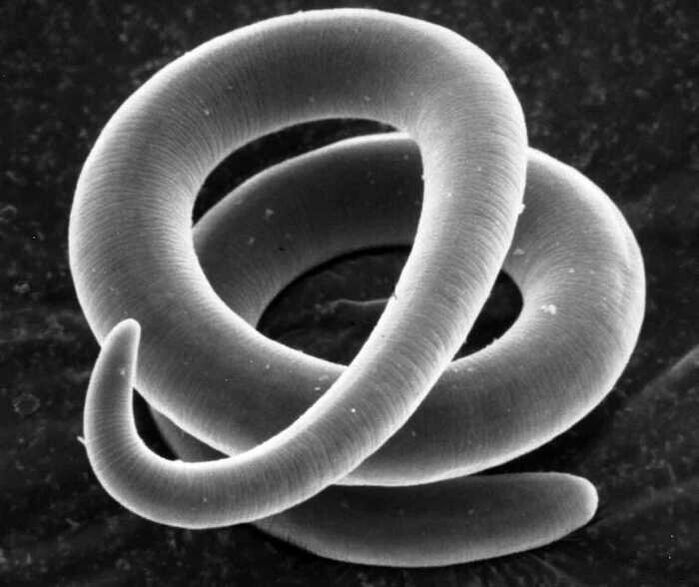
Trematodes
Trematodes are flat worms that affect the liver, lungs and blood. Infection usually occurs while in contaminated water or eating undercooked meat.
There are other types of helminthic injuries, but they are not as dangerous or widespread. The main symptoms and treatment of all helminth invasions are similar.
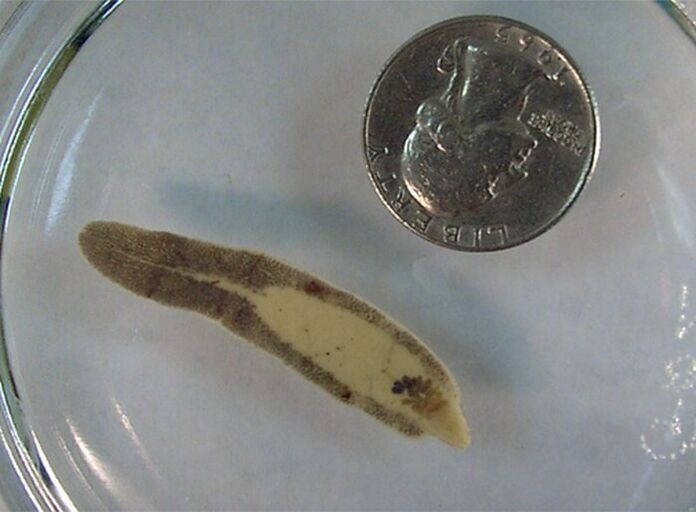
Symptoms
The symptoms of helminthic lesions are varied. If most of them are present, it is worth thinking about the likely invasion of the parasite and making the diagnosis.
- Swelling, increased gas production, any other problems with the functioning of the large intestine.
- Frequent constipation or diarrhea. It depends on the stage of development of the parasites. Constipation occurs when specimens of worms become large and block the passage of the intestines with clots. Diarrhea indicates that long individuals interfere with bile secretion.
- Allergic reactions. Especially noticeable if the person is not allergic. Allergies can manifest in different ways - skin rashes, eczema, boils and papillomas.
- Cough. Often dry, no other cold symptoms. Antibiotics and cough suppressants don't solve the problem.
- Inflammatory diseases of the respiratory system. Worms can migrate through the body and reach the respiratory tract. It can cause bronchitis, pneumonia, asthma.
- Itching in the anal region. Associated with the release of parasites for egg laying. Appears mostly at night.
- Joint and muscle pain. They also appear due to the movement of parasites through the body.
- Teeth grinding - bruxism. It is associated with an increase in nervous system activity during parasitic infection. Appears during sleep.
- Chronic fatigue and a depression-like condition. Worm waste literally poisons the body, which leads to deterioration in the well-being of a person as a whole.
- All manifestations of reduced immunity, frequent colds. It can be difficult to heal quickly.
If most of these symptoms are observed, the probability of worms is high. It is best to run a series of diagnostic tests immediately to confirm or refute this assumption.
Important! Any of these symptoms should be referred to a specialist immediately. These signs can speak not only of helminthic damage but of other serious illnesses as well.
Diagnosis
When worms are affected, the diagnosis cannot be made just by the presence of symptoms. A series of studies must be done. Some of them provide almost 100% accurate results.
- Various microscopic examinations of stools and scrapings. These methods are the cheapest and most common, but they do not provide a 100% reliable result. It is possible to recognize worms using these analyzes only at the time of laying eggs, otherwise their presence will be invisible.
- ELISA - enzyme immunoassay. This method gives an extremely accurate result, helps to determine the stage of development of the worms and their type. The only downside to this review is the rather high cost of its performance.
- Hemoscanning. This method can help to refute or confirm the presence of worms in the body. With this blood test, traces of your vital activity and intoxication will be noticeable. The essence of this method lies in the study of "live" blood collected just now.
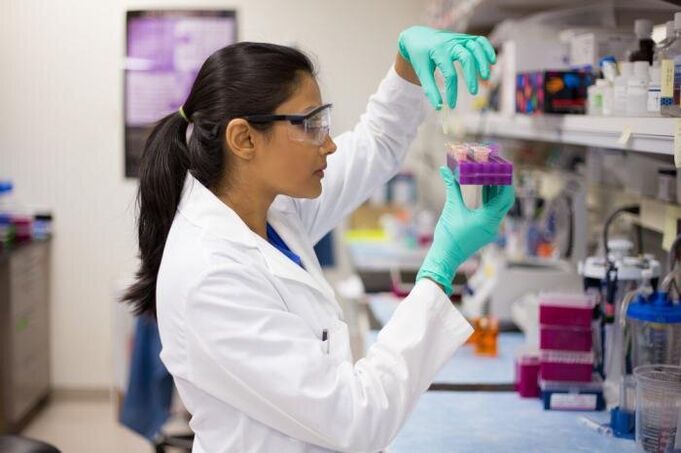
Important! It is usually advisable to go through several studies to confirm the result.
Which doctor are you treating?
With a suspected helminthic invasion, it is best to contact a regular therapist and describe the situation to him. If tests to determine the presence of parasites have already been performed independently, they should be taken with you.
The therapist will refer you to the most suitable doctor for the specific situation. If the worms are concentrated in the gastrointestinal tract, a specialist will refer a gastroenterologist. This happens in most cases, as most parasites live in the intestine.

In some cases, it is necessary to consult a parasitologist or specialist in parasitic diseases. But these narrow-profile doctors are far from anywhere, so situations that don't go beyond the scope of a typical infection are entirely subject to the treating physician.
home therapy
Immediately after detecting the disease, treatment should be started. Most anthelmintic medications have many side effects, so it is recommended to take them under your doctor's supervision.
Medications are different depending on the type of worm that infects the body. In general, all medications can be divided into several groups.
- Medicines for nematodes, which include worms and roundworms.
- Remedies for Cestoids - Tapeworms, which include bovine tapeworm, small tapeworm, echinococcus.
- Medicines for trematodes, flatworms.
Important! It should be remembered that anthelmintics are very toxic and must be taken with caution.
Taking medications for prophylaxis
Since taking anthelmintic drugs has a large number of negative effects, it is not recommended to take them this way for prevention purposes if there is no increased risk of infection. Infection can occur any day: if you take a pill today, you could get sick tomorrow.
There is a short list of indications for the use of prophylactic drugs against worms:
- The appearance of worms in a family member or in a person who lives in the same apartment. The rest can be infected, so if any family member has helminths, it is recommended that all others take prophylactic anthelmintic medications.
- If a child goes to kindergarten, he, his parents, brothers or sisters are also advised to take anthelmintic medications for prevention. It is believed that, in a closed children's collective, the danger of spreading parasites is increasing.
- Pets. If there are dogs or cats in the house, especially if they are often on the street, owners are advised to take prophylaxis with antiparasitic drugs.
- Contact with the ground, working with it. Especially for summer residents and wildlife lovers.
- Constant trips to exotic countries. There is a high probability of bringing in a rare parasite from southern countries, so treatment will be complicated by the inability to quickly determine its type.
- Wild life hobbies. This includes hiking, fishing, hunting.
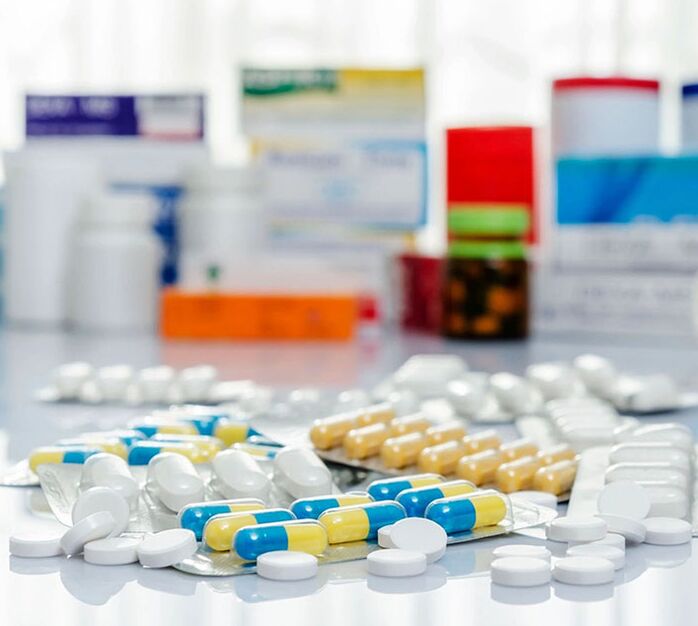
Only in these cases is the prophylactic administration of anthelmintic drugs permissible and beneficial.
Treatment with folk remedies
Popular antiparasitics often come to the aid of worm pills. You should be careful with them - some of them are dangerous or can cause damage if abused.
bowel cleansing
Sometimes, bowel cleansing with enemas is recommended after taking anthelmintics to literally eliminate the dying parasites. The rationality of this method is questionable, but the usual water enema is not dangerous - it can be done for your own peace of mind.
Some people recommend taking an enema with baking soda or salt - this method is even more controversial. Soda and salt can burn the mucous membrane and upset the water balance, so you should not use them. Also, most parasites live in a different part of the intestine. This method should be deferred as a last resort.

garlic treatment
Worms are known to be afraid of spicy and burning foods. Therefore, during treatment, you can add more garlic to the diet as a seasoning. You can also eat several cloves in the morning with a glass of milk. So you need to empty your bowels and eat breakfast. You can do this without milk - only this product makes garlic easier to eat.
Inserting tampons soaked in garlic juice into the anus is not recommended. May cause allergies and burns.
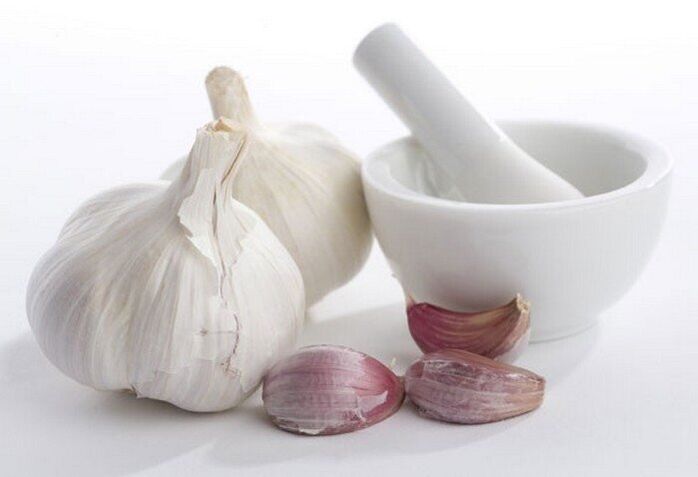
pumpkin seeds
Pumpkin seeds are another effective folk remedy for the treatment and prevention of parasitic diseases. There are several methods of fighting them with worms.
On an empty stomach, every morning you need to eat a few tablespoons of pumpkin seeds. Then you should wait about an hour and empty your bowels. If this cannot be done, you will need to take a laxative. So you can have breakfast.

For the second method, you need to mix a cup of roasted and ground pumpkin seeds with a cup of honey and a spoon of baking soda. Infuse this mixture for about ten days in a dark place. Use only glasses. The ready mixture should be consumed by spoon every morning, well before meals.
Important! If you are allergic to folk remedies, they should be abandoned.
Prophylaxis
The main prevention of parasitic diseases is to keep the body and house clean. After using the bathroom from the street - you need to wash your hands well with soap and water. You cannot share towels, toothbrushes, combs with other people, even if they are family members.
Meat and fish must be rinsed before cooking and thoroughly cooked. Wash fruits and vegetables thoroughly, preferably pour boiling water over them before using.

It's not worth taking anthelmintic medications for prevention, but you can periodically rely more on spicy foods, garlic. For the same purpose, pumpkin seeds can be introduced into the diet.
Knowing all the possible symptoms and manifestations of parasitic diseases, they can be detected at an early stage, after which they can be quickly and painlessly cured.






































